HOW THE WEST WAS LOST AND BORING
Under the baton of California’s own celebrity composer, John Adams, the LA Phil performed his Girls of the Golden West in a concert setting on Friday, January 27th. Premiered in 2017 by the San Francisco Opera, the work was conceived and co-created by librettist, culture maker and long-time collaborator Peter Sellars. Mr. Sellars wrote the libretto for Dr. Atomic and has also directed Adam’s other famous operas, Death of Klinghoffer and Nixon in China.
As with most operas, Girls is based on previously published and performed works. David Belasco‘s same-titled 1905 play was previously adapted into an Italian opera by none other than Giacomo Puccini under the translated title La Fanciulla del West. According to Adams’ program notes to the work, both he and Sellars were offered to stage Puccini’s opera. But Sellars found the work to be “an opera with such unsettling stereotypes.” Thus, this opera was conceived and created with the impetus of creating work using the first-hand account of people living during that time.
It takes place in mining camps in the Sierra Mountains during the early California Gold Rush. An ensemble of unlikely heroes is gathered with libretto text drawn from first-hand accounts by Louise Clappe, Ramón Gil Navarro, Mark Twain, and numerous publications. Act I opens with the booming voice of our bass-baritone Ryan McKinny, who as narrator places us directly in their 1851 world. We have a little comedic scene with Dame Shirley (Julia Bullock), our knowing observer who recalls her difficulties traveling with an obstinate mule to the Golden West, where she meets freed slave Ned Peters (Davóne Tines), who ends the first scene with a powerful solo. In Scene II, we meet our heroines, mezzo-soprano Daniela Mack as bar worker Josefa Segovia and soprano Hye Jung Lee as Chinese prostitute Ah Sing. The two have a run-in with miner Joe Cannon (tenor Paul Appleby), who woos Ah Sing with his charm. To her dismay, Joe runs away as soon as she completed her service with him. The story unfolds from this point, wherein the characters are all resigned to the difficulties of living in a rough, pioneer town.
On the technical side, there is nothing to criticize. The soloists are top-notch and Adams’ conducting, sometimes a little too frenetic (understandable given the score’s complexity), is terrifically well-executed, although the musicians were a little shaky with the challenging material. In the opening, it seemed like a labor to keep the orchestra together — the occasional flutter of mismatched bowing is uncharacteristic of the strings.
The combination of the didactic language and the length of the work really challenges a viewer’s attention span, especially in this concertized version (which was being recorded for release I believe). This work desperately needs a dramaturg to overhaul it, as I found myself unable to emotionally connect with any characters. The storytelling is as dry as an AP US History textbook. While I applaud the creator’s impulse to imagine a work that reflects history, a lot of good storytelling technique is lost in service to the sanctified words straight from the horse’s mouth. Thus, the co-creators intentionally disempower themselves from the wisdom of modernity afforded to them, which should be used to re-examine the past and critique this complicated history.
The soloists are all powerhouses. Ms. Bullock’s Dame Shirley (aka memoirist Louise Clappe) is performed with palpable warmth, her expressive stage presence conveying the psychology of her character. Playing a self-liberated African American in the Wild West, Mr. Tines’ booming voice matched his macho presence. He is a delight to watch. Ms. Lee’s “Ah Sing” is heartbreaking because her voice combines tender beauty with great sonority, and she captures our hearts with her expressive voice in “The Ballad of Ah Sing,” Ms. Mack’s masterful command of switching between the Spanish and English libretto is impressive, while the love between her Josefa and Elliot Madore‘s fellow saloon worker Ramón is evident in a tender duet. Mr. Appleby commands our attention with his perfect portrayal as the fun scalawag Joe Cannon. Mr. McKinny’s Clarence King anchors the production with his steady voice and presence on stage. The men of the Los Angeles Master Chorale are an absolute delight in this production. I can tell they thoroughly enjoy making rambunctious noises on cue. Their voices work seamlessly together and their energy and presence completely fill the hall. Bravo to them.
Overall, there is just too much preciousness towards the material at hand. It makes terrible art. I suppose there is an intention to empower the story’s female characters, which Josefa Segovia’s martyrdom in the closing scene suggests, but the work has not gone far enough. The opera hovers between being an ensemble piece and a hero’s journey; the lack of choosing one or the other further drags down the story’s pacing. I understand and appreciate the grandeur of the opera form, but here it is is more yawn-inducing than dramatic.
photos by Mathew Imaging/Los Angeles Philharmonic Association

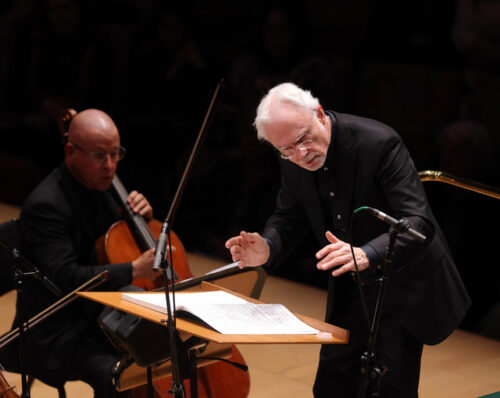
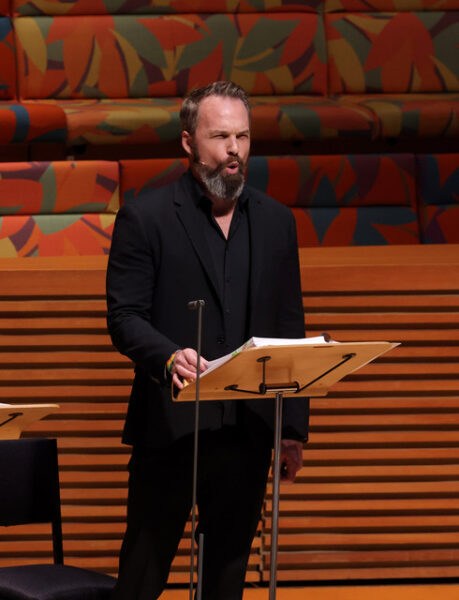
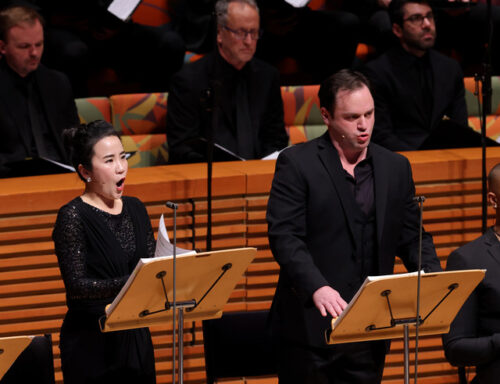
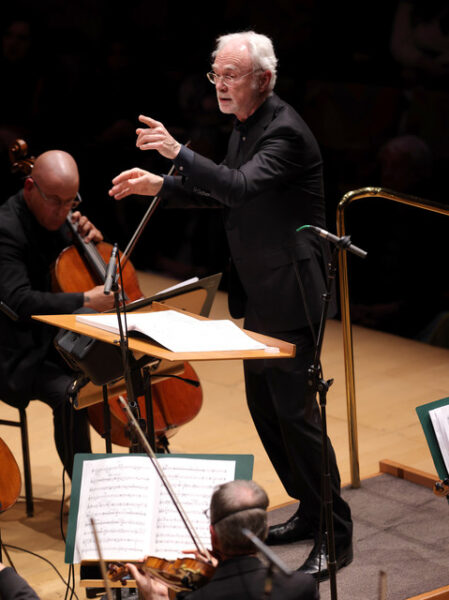
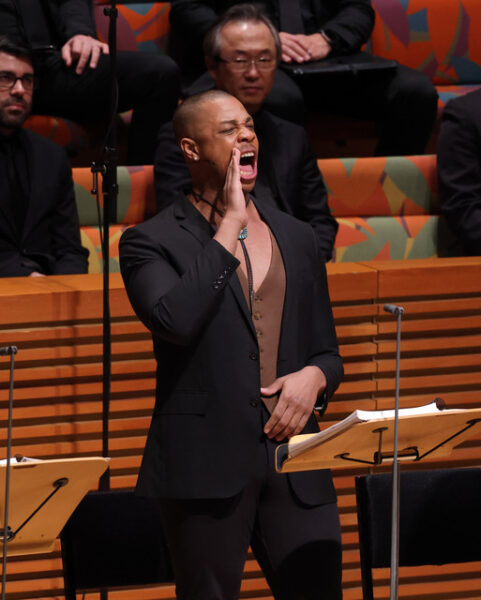
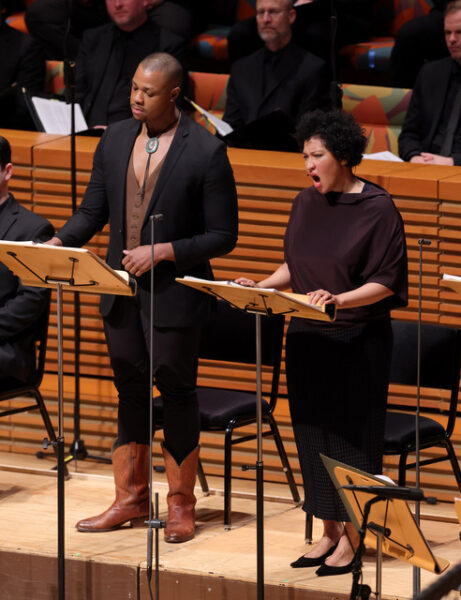
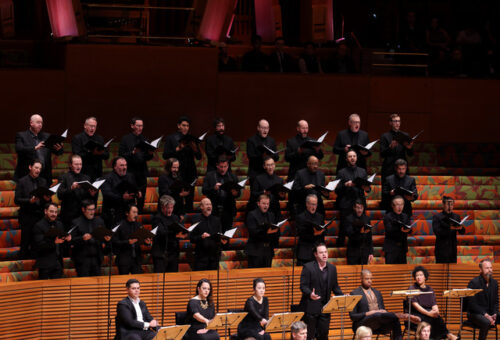
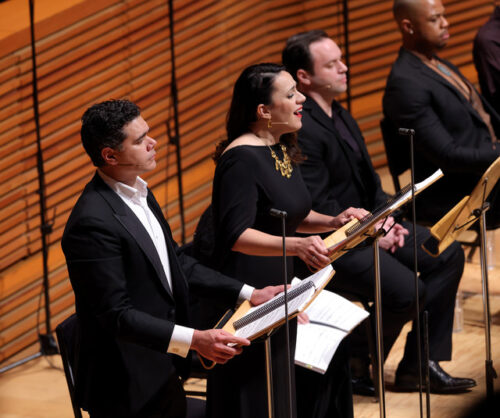

{ 1 comment… read it below or add one }
Correct. I saw it an hour longer at the San Francisco Opera. Adams has just lost his way. He has not composed an fully inspired piece of music since the Death Of Klinghoffer, over 20 years ago.